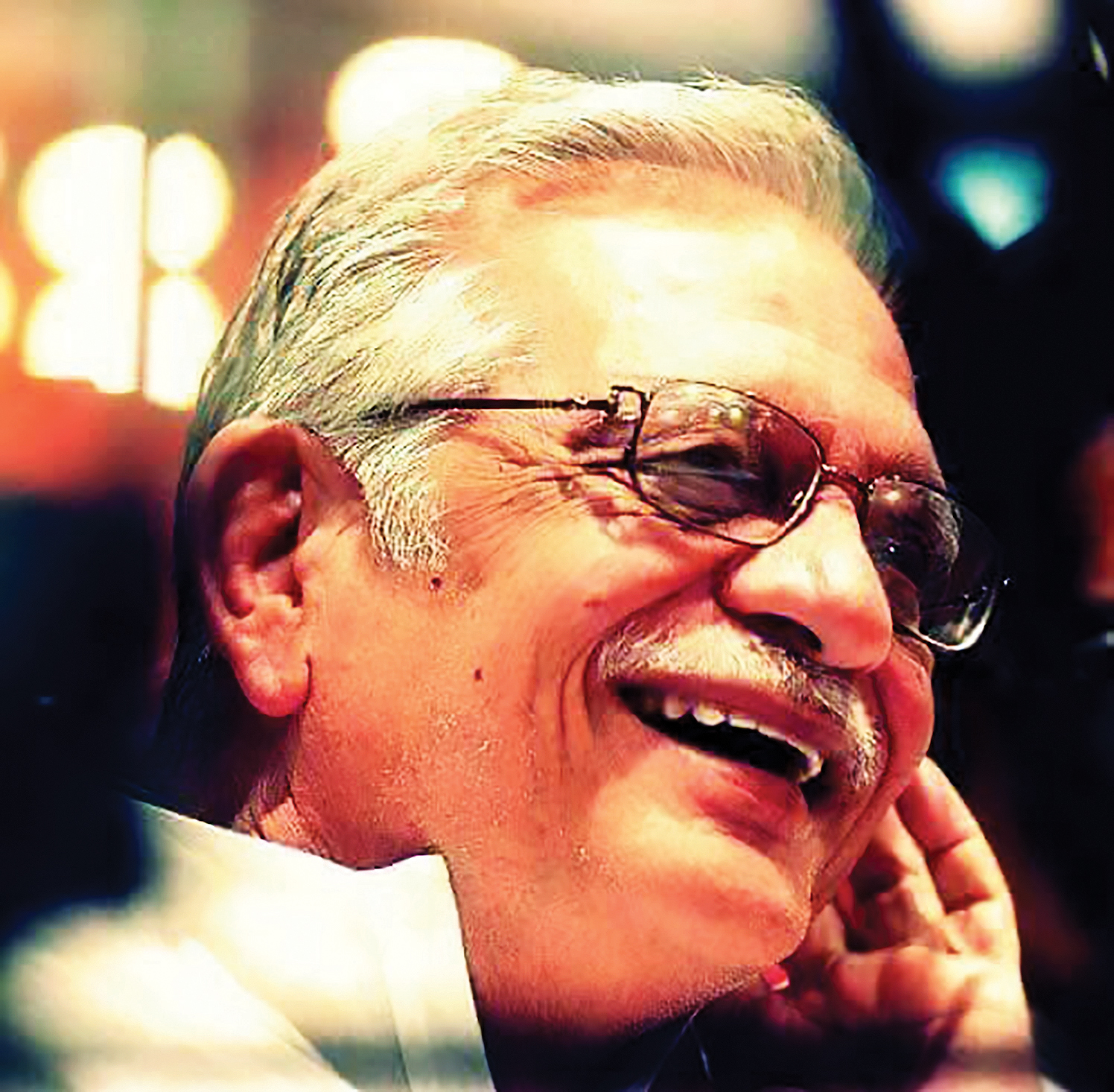
Murari Lal ka kehna hai pehli si mohabbat koi mehboob na mange,
Na koi zikr ho ab uski zulfoon ka, na rukhsaro ki baatein,
Ki usne bal chote kar liye hain, ki labon ki baat aah bhar tak hain,
Ke dono bus pakar ke 8.10 ki gaari lekar 9 baje tak daftaar pauhunchte hain,
Tiffin kandhey pe latke bag mein aur ungliyaan cellphone pe kuch type karti hain.
Na koi waseela hain, na rahaat hain,
Ke raahat asal mein tankha pe milti hain…
(Murari Lal says no lover should ask for love of the old days/Nobody should mention her hair or her cheeks/That she has cut her hair, that her lips yield only sighs/Both have boarded the 8.10 train and reached office at 9/Tiffin in the bag hanging on a shoulder, texting on a cellphone/No relationships, no relief/That relief only comes when salary is paid)
Who could have described the misery of modern-day love with such beauty, other than Gulzar Saab? Known for the timelessness of his works – be it his poetry, songs or films – this legend has tirelessly worked in all spheres with the same enthusiasm as he started five decades back!
Speaking at the Media Rumble, Gulzar Saab for the very first time introduced the audience to Murari Lal – a character from his yet unpublished work – Murari Lal ki Diary. The excerpts (above) from the book shows how this time he uses layman’s language, for reasons he himself explains. “I have written nazms with seriousness, which people read and forgot. What they do remember is ‘Beedi jalailey jigar se piya’. So I had to come to that language and say things within those lines,” he says.
But who is Murari Lal? “He is the common man. I introduced a character of the same name in Anand, which denoted the same. Anand addresses every common man as Murari Lal. So, I decided whatever I need to convey, I’ll do it through him.”
Gulzar Saab feels shayari (Urdu poetry) is a medium of expression and reflects our everyday life, surroundings and what society is going through. “Shayari sirf romance hi nahi hai, shayari bahut kuchh kehti hai aur shayari apne daur ko darj bhi karti hain (Poetry is not just romance, it says a lot about society).
Talking about today’s India, he says: “Do Hindustaan nazar aatey hain. Ek jo navey dasvey badal par kadam rakkhey hain, aur dusra jo paer uthatey hain toh daldal mein parte hain (I see two Indias – one which is floating on Cloud 9, and other whose feet are stuck in the swamp). He further went on to point out that in India, on one hand we are going to the moon, on the other there’s water crisis. “Hazar bulb jalaa dene se aap raat ko chupa toh nahi sakte hain (Even if you light thousands of bulbs, you can’t hide the night),” he summarises.
As a doyen of the film industry for decades, Gulzar Saab has seen it all. When asked about the recent open letter to the PM by 49 well-known personalities, and whether the industry was divided earlier as well, he says it was not. This year, with the release of films like Thackeray, PM Narendra Modi, The Accidental Prime Minister – the debate on pro-establishment films was rife. He recalls that anti-establishment films were made in the olden days too, but these pro-establishment ones are a ‘new development’.
His songs have often been the voice of dissent, especially those ones where he collaborated with filmmaker Vishal Bharadwaj. He agreed that cinema being a popular medium, has come up to use this platform for showing popular angst. But what he also spoke about is music – it reaches more places, further off than films do. Thus, even if the films are becoming the voice of protest, music has a long way to go.
On film censorship, Gulzar Saab also shared how his film Maachis had to face the wrath. He said there was a line in his film which said, “Minister aa gaya,” to which the Board objected. So he was compelled to change it to “Mister aa gaye!”
Such obstacles did not deter the evergreen poet, and thus even today his pen is mightier than ever. Another project which he spoke about is a book which is set to release this year – A Poem a Day. It contains translation of poems from every state of India. “I started translating all the poems I confronted, right from 1947 onwards. I have translated works of 272 poets of this period, from 32 languages of our country,” he shares with the audience. “I’ll give you a poem and a poet every day. Alag zaban se roz ek shayar ka aapse taluk kara dunga (I will introduce you to poets in different languages every day),” he shares.
When asked how he has managed to be relevant even after five decades, Gulzar Saab says, “Uski badi wajah hain maine aap logo ki ungli pakdi hui hain (The main reason behind this is I am holding your finger).” He further adds, with his humbleness and warmth, “I react to everyday life and to this generation tremendously. I have not grown up at all. That’s what keeps me relevant.”
Around 100 international flights were cancelled at Delhi airport due to disruptions linked to the…
Due to mounting debt and constant pressure, he decided to kill his family and leave…
According to the police, information was received from GTB Hospital regarding the admission of an…
Over 75,000 fans filled Jawaharlal Nehru Stadium as Karan Aujla delivered one of India’s biggest…
Jewellery, silver and cash worth Rs 1.15 crore recovered after police apprehended three accused, including…
Featuring over 70 tribal artists and 1,000 artworks, the festival at Travancore Palace will showcase…